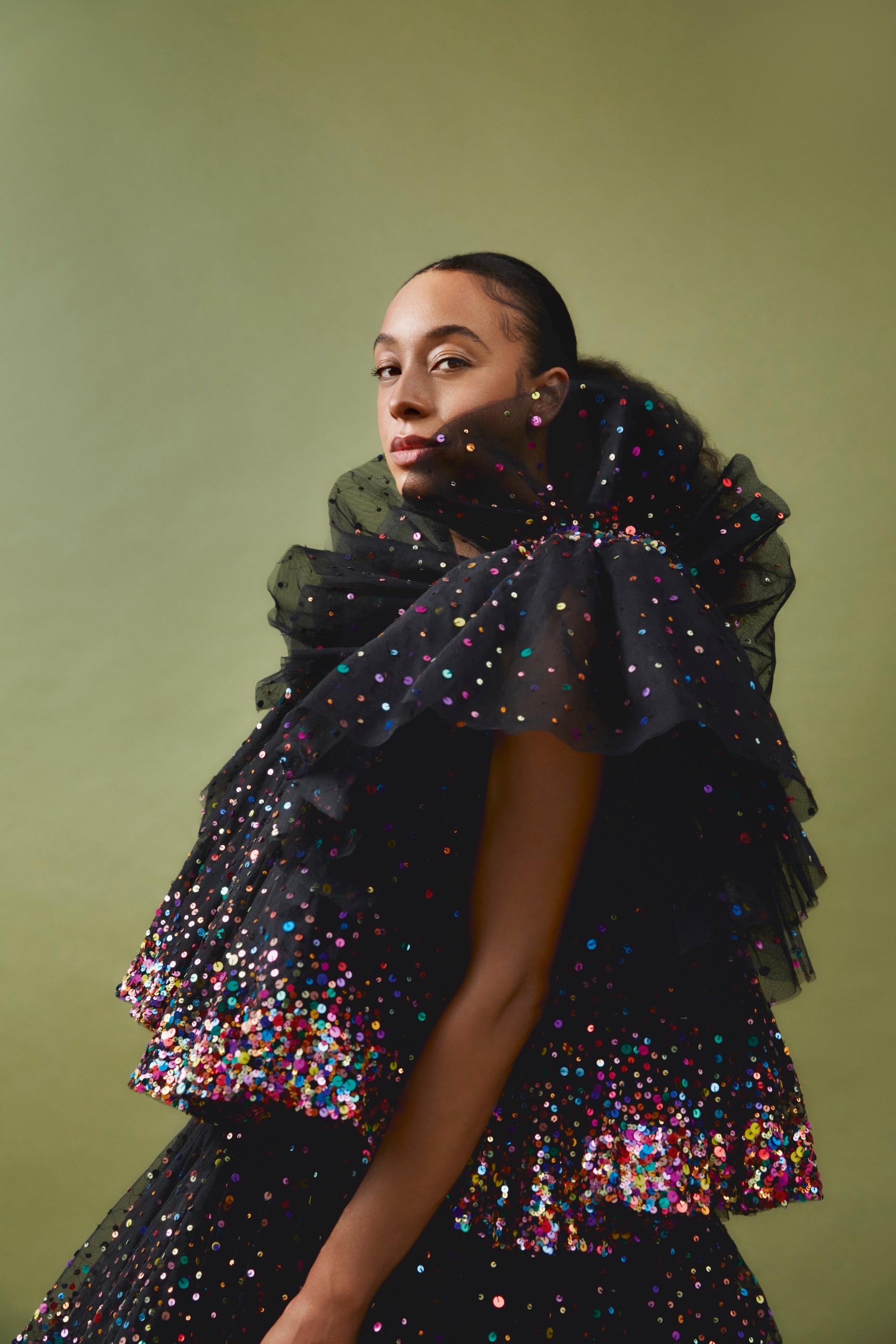Two-time Grammy Award winner Corinne Bailey Rae will share her artistry and professional insights over three days in February as the Spring 2024 Artist-in-Residence at the Clive Davis Institute of Recorded Music at NYU’s Tisch School of the Arts. Bailey Rae’s residency focuses on her album, Black Rainbows, and brackets a four-night stand at the Blue Note Jazz Club in Greenwich Village.
The Clive Davis Institute residency marks a first for the artist, who is perhaps best known for her hit “Put Your Records On.” The residency centers songwriting and performance, with emphasis on her latest record, a work inspired by material collected by contemporary artist Theaster Gates and displayed at the Stony Island Arts Bank in Chicago.
To create Black Rainbows, Bailey Rae spent several years researching and engaging with the objects at Stony Island, a former bank built in 1923 that Gates saved from demolition in 2012. Wide-ranging in style, the record explores social and cultural themes, from the westward journeys of Black pioneers and the experiences of Miss New York Transit 1957 to meditations on Black femininity and the erasure of Black childhood.
The musician will lead workshops and give talks on Feb. 16 and Feb 21-22 at the institute’s home at 370 Jay St. in Brooklyn. She will also give a student-only performance at The Garage, the NYU performance venue. Clive Davis Institute students can enter a raffle for tickets to Bailey Rae’s Feb. 15th performances at the Blue Note.
“The residency will be about the album, but also about the successful evolution of an artist, the idea that growth and change are essential for an artist’s continued success and relevance,” says Nick Sansano, chair of the Clive Davis Institute of Recorded Music. “Corinne is perhaps best known for her pop hits, but this music is different, more challenging. Its subject matter is more serious and expansive, its sound more experimental. It’s her response to the art and artifacts, which brings with it deep social and cultural meaning.”
Bailey Rae first visited Stony Island Arts Bank in 2017, when she attended and performed at its Black Artists Retreat. The books, records, artworks and everyday objects inspired her, as did Gates, she writes on her website.
“I saw scores for songs written during slavery times, 1000s of Black books in a double height library, a Nick Cave Sound Suit just hanging on the wall, postcards, glass slides, ceramic objects, African masks, contemporary sculpture, and everything so tactile, wood, glass, marble, stone, ceramic, leather,” she writes. “I knew when I walked through those doors that my life had changed forever.”
Sansano believes Bailey Rae’s holistic artistry will also inspire students.
“This offers important historical references, and will encourage students to dig further and make their own discoveries,” he says.
Along with her album, Bailey Rae has released a coffee table book, Reflections/Refractions at the Stony Island Arts Bank, co-authored with Gates and photographer Koto Bolofo.
